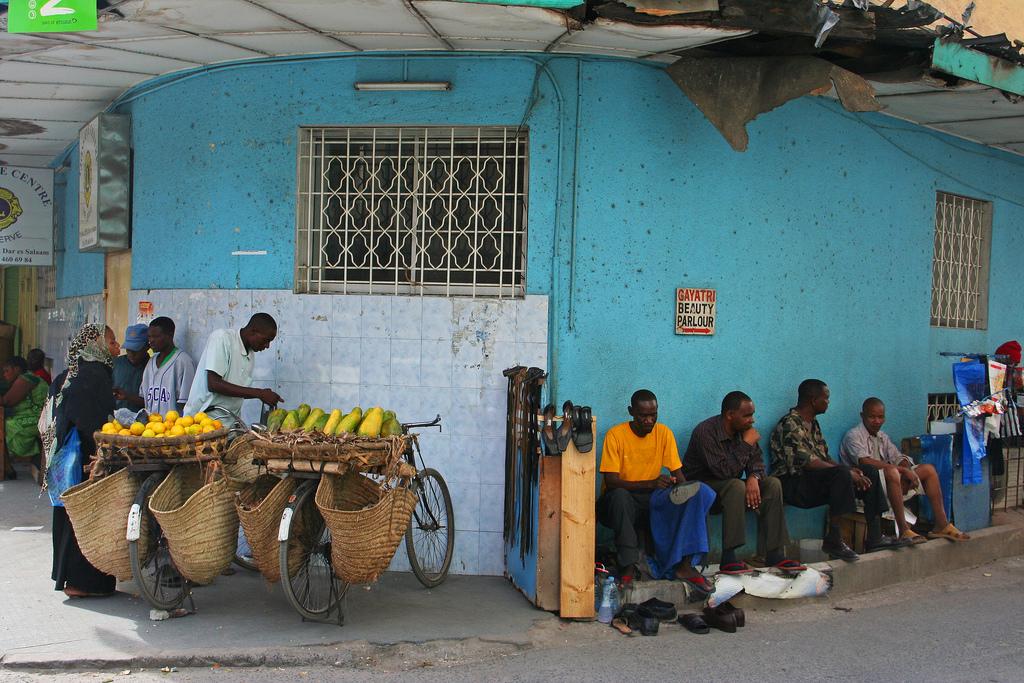Across East Africa, civic mobilisation is rising, met by repression, criminal infiltration, and democratic backsliding.
On June 25, 2025, Kenyans returned to the streets to mark the anniversary of the 2024 youth-led demonstrations. Initially triggered by the Finance Bill’s proposed tax increases, the protests quickly evolved into a broader uprising against governance failures, inequality, and civic repression. Thousands rallied to honour those killed, demand justice, and assert their right to shape the country’s future.
But the unrest witnessed in Kenya over the past two years is not an isolated national phenomenon. It mirrors a wider regional shift: from Kampala to Khartoum, youth-led movements are reclaiming civic space across East Africa, confronting political exclusion, and resisting governance models that no longer reflect their aspirations.
Yet this civic mobilisation is increasingly met with repression.
According to the World Bank’s 2023 Fragility and Conflict Report, “Civic mobilisation has not been matched by complementary state responsiveness… and may open the door for less liberal forms of governance.”This mismatch between the rising voice of citizens and the inertia of institutions is now among the greatest risks to stability in East Africa and beyond.
Criminal economiesAccording to the 2021 Global Organised Crime Index, Kenya ranks first in East Africa and fourth in Africa for criminality, driven by illicit arms flows, human trafficking and gang-related activity.
A 2024 study by the National Crime Research Centre, conducted across 11 counties, found that more than 82 percent of Kenyans believe criminal gangs are active in their communities, citing increased violence, intimidation and influence over youth groups.
These organised gangs are deeply embedded in politics.
They operate as campaign enforcers, extortionists, and informal regulators in urban settlements. Since the Covid-19 pandemic, many have expanded into cybercrime, human trafficking and narcotics, with growing transnational links to networks in Tanzania, South Sudan and Somalia. These actors are not merely criminals, they are political instruments.
Recent protests in Nairobi and other cities have exposed how criminal groups infiltrate civic mobilisations: some exploit the chaos, while others serve political interests by discrediting demonstrators.
This tactic provides a pretext for violent crackdowns, enabling the State to blur the line between policing and repression. Consequently, peaceful protesters are often targeted alongside armed provocateurs, further eroding trust and weakening democratic expression.
This dynamic is not unique to Kenya. Similar patterns of gang-State collusion and civic repression have been observed in Uganda’s post-election unrest and Ethiopia’s protest crackdowns.
Criminal political networks are increasingly regionalised, operating across porous borders and thriving on weak small arms regulation and limited intelligence sharing between States. Electoral cycles, in particular, have become flashpoints for gang mobilisation and State complicity.
This convergence of organised crime, political repression and regional impunity is not merely a security concern, it is a direct challenge to democratic governance, electoral integrity and the future of East African integration.
Gendered violence as civic punishmentA growing number of women are sharing their experiences of sexual assault during the recent protests in Nairobi, revealing a deeply troubling pattern that precedes formal documentation.
These reports echo longstanding trends: more than 3,000 rapes were recorded during the 2007-2008 post-election crisis, and widespread police-perpetrated sexual assault was documented during the 2017 protests.
In this context, gendered violence functions as a form of civic punishment used to silence dissent, deter political participation and instil collective fear. Survivors’ access to justice remains elusive, with investigations rare and prosecutions even rarer.
An effective response must centre survivor-led inquiries, ensure access to medical and legal support, and embed gender-based violence prevention into civic policing. Protecting civic life means protecting the bodies of those who dare to claim it.
The cost of disillusionmentThe deeper threat lies in the erosion of public trust. According to Afrobarometer (2023), only 37 percent of Africans express satisfaction with democracy, and 53 percent would support military rule if civilian leaders abuse power, rising to 58 percent among youth aged 18–25.
While Kenya has not shown widespread support for military rule, the rise in civic disillusionment, especially among young people, signals growing frustration with democratic institutions that appear unresponsive or exclusionary.
This disaffection threatens the foundations of regional integration. Without political legitimacy, treaties and trade blocs cannot hold. Integration depends not just on roads and tariffs but on civic trust, inclusive governance and shared democratic norms.
The economic toll of instability is equally significant. Fang et al. (2020) estimate that conflict reduces a country’s annual GDP growth by 2.5 percentage points, with losses compounding over time. Furthermore, authoritarian regimes in Africa have also been shown to prioritise defence spending over public services such as education and healthcare, thereby deepening inequality and long-term social unrest.
Towards a regional responseEast Africa cannot afford to treat these issues as isolated national challenges. They demand concerted regional responses anchored in the East African Community (EAC) and African Union frameworks.
First, the Regional Centre on Small Arms (Recsa), which already provides technical support for disarmament, arms tracing and control, should be fully integrated into the EAC’s conflict prevention and electoral support mechanisms. This includes aligning Recsa’s tools with EAC national action plans, strengthening parliamentary oversight on arms legislation, and embedding Small Arms and Light Weapons (SALW) governance into peacebuilding strategies.
Second, addressing the convergence of organised crime and political repression requires an EAC-led response to criminal–political networks. Regional anti-gang initiatives must be grounded in legal cooperation, intelligence sharing, and public accountability.
Institutions tackling financial crime, electoral integrity and corruption should work collaboratively to dismantle these networks, with a firm commitment to rights-based safeguards that prevent the securitisation of dissent.
Youth civic engagement must be treated as a strategy for regional stability, rather than a risk to be managed. Disillusioned youth are not liabilities; they are architects of democratic resilience.
The EAC must resource independent organising, safeguard freedoms of assembly and expression, and embed young people meaningfully in peace and security processes not as symbols, but as strategic actors.
The writer is a gender, peace and security specialist and co-founder of Usawa Inc. Provided by SyndiGate Media Inc. (
Syndigate.info
).







